- A note from Rob
- Term 2 recap
- Make culture visible: QT Pulse
- Perth workshop
- TTRC research informs Australian Centre for Evaluation
- Strengthening Induction through QTR project
- Quality teaching resources and support
- School stories revisited: James Sheahan High School embraces QTR
- Upcoming workshops and webinars
- Recent publications and media
A note from Rob

It’s hard to believe that we’re already mid-way through the school year! We appreciate what a busy term it has been for schools and hope that everyone has the opportunity to reset and recharge in readiness for Term 3.
It’s been a fast-paced term at the QT Academy too. Our team has had the pleasure of working with teachers from all states and territories in the many QT workshops we’ve conducted.
The national reach of our workshops is a powerful reminder of the vision we all share in our teaching profession – to provide quality teaching for our students and to continue to build a culture of professional collaboration in our school communities.
The picture below is of our QTR Adviser team holding the Solomon Island Flag. The flag was kindly presented to the QT Academy at the recent QTiP conference by delegates from the Solomon Islands Ministry of Education and Human Resources Development. We are very grateful for this gesture and have the flag proudly displayed in our QT Academy office.
Rob Barter
QTR Adviser

Term 2 recap
What a way to end Term 2! In a single week our team delivered two online workshops, face-to-face workshops in Geelong and Perth, attended a principals’ network meeting in the Upper Hunter, and presented at a conference for distance education in Freemantle! This comes on the back of a big term in which we delivered QT workshops in NSW, NT, QLD, SA, VIC and WA and hosted our third annual QTiP conference in Sydney. We also worked with final year Education students here at the University of Newcastle to help them prepare for their internships.
Our QTR Advisers, Beth, Kate, Michelle and Rob, have forged some great partnerships with schools and have further refined how we can support you to ensure that QT delivers the same results in your schools as it has in research.
We are using the lull in workshops over the school holidays to engage in our own professional learning on presentation and writing skills, as well as spend time with our families.
Who attended QT workshops in Term 2, 2024?

Make culture visible: QT Pulse
During QTiP23, Dr Drew Miller officially launched a free tool for school leaders to gather data about their school culture and environment to help drive data-led improvement – the QT Pulse School Health Longitudinal Survey. At the 2024 QTiP conference, Drew presented some key findings from the first 12 months, drawing on anonymised data from all the schools currently using the QT Pulse Survey.
Drew found the average burnout of teachers and leaders who completed the survey over the past 12 months rated 6 out of 10 and stress was rated 7 out of 10. Meanwhile, morale had a large spread ranging from 2 to 8 out of 10. Drew then presented some correlations:
- Stress and burnout were related: high stress correlated strongly with high burnout
- Morale and burnout were related: low burnout correlated strongly with high morale
While that might seem fairly intuitive, the QT Pulse Survey data showed no relationship between morale and stress. You can have high stress and high morale. Drew’s analysis highlighted the fact that morale is protective of burnout.
To reduce teacher burnout we either need to reduce stress or improve morale.
Stress is hard to change – a lot of what causes stress are system related issues, such as workload. But morale we can change, Drew said. Then he presented a five-point plan:
- Make culture visible. Sign up to the QT Pulse Survey, run the survey and share the results with staff, and find out, do you have a morale problem?
- Work on relational factors. The QT Pulse Survey data showed relational measures such as connectedness, trust, leadership, and school vision correlated strongly with morale.
- Do Quality Teaching Rounds. Research shows QTR improves teacher morale, which makes sense, given the way QTR builds connection and strong relationships between teachers.
- Focus on morale. Trial other systems that focus on morale and measure their impact over time with the QT Pulse Survey.
- Encourage physical activity and sleep. While doing more physical activity doesn’t improve burnout, it does have a strong relationship with sleep quality which reduces burnout.
Perth workshop
Interest in the QT Model and QTR continues to build nationally. This term, we were excited to present the first ever in-person Western Australian QTR workshop in Perth.
Laureate Professor Jenny Gore AM engaged with 40 teachers and school leaders from government, Catholic and independent schools around the state in what was a well-received, landmark PD experience for all involved.
The conversations throughout the workshop were rich and affirmed the great practice occurring in classrooms every day, as well as providing much food for thought about ways to tweak classroom practice to increase student achievement.
We look forward to working more extensively with our Western Australian colleagues to support and strengthen teaching and learning across the state.
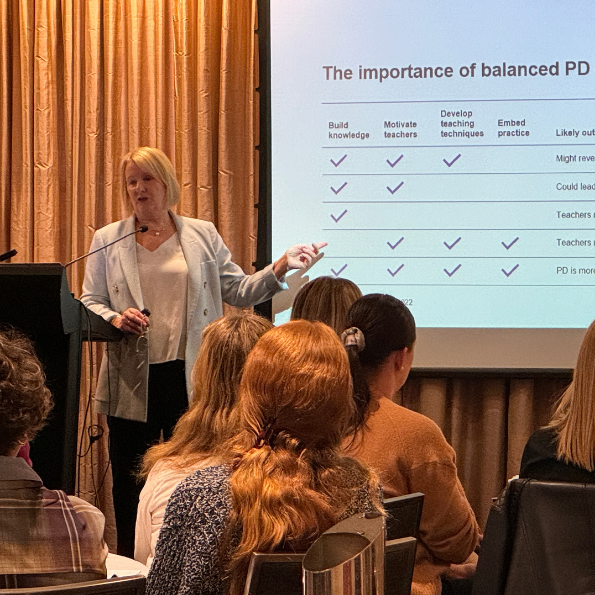
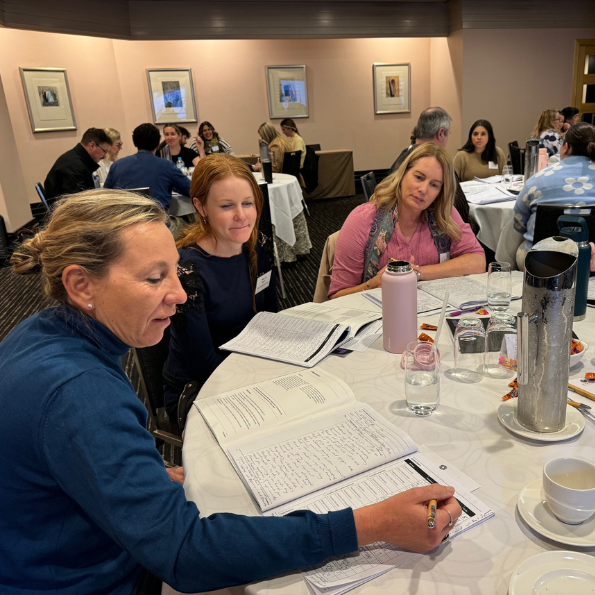
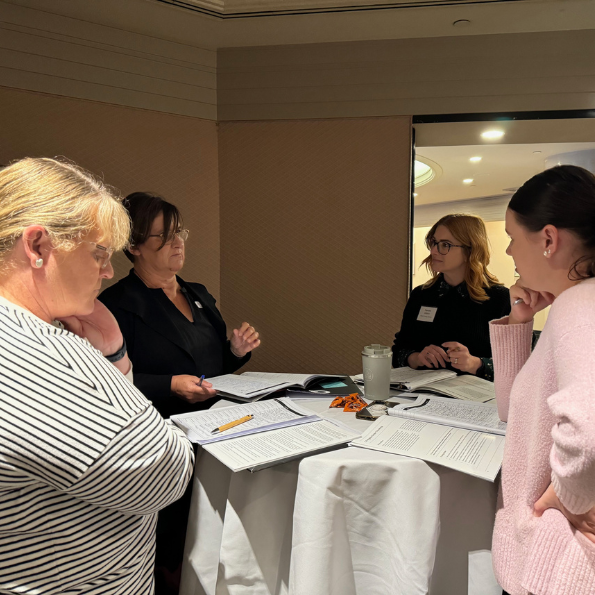
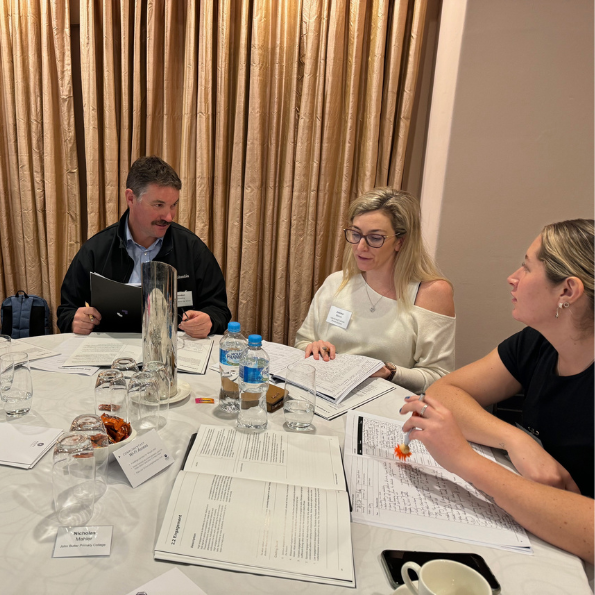
TTRC research informs Australian Centre for Evaluation
In June, the Australian Centre for Evaluation held an invite-only workshop for policymakers and researchers to brainstorm how to advance impact evaluations in Australian public policy.
Dr Drew Miller presented an overview of findings and key lessons from the recent five-year program of research on QTR. Drew laid out the complexities of conducting randomised controlled trial research in schools and emphasised the need for greater collaboration between education systems and researchers, better access to national and state datasets, and increased support for building researcher capacity, if we are to improve the evaluation of education policy.

Strengthening Induction through QTR project
All teachers participating in the Strengthening Induction through Quality Teaching Rounds project are eligible for a free two-day workshop.
QTR brings teachers together to learn from each other and improve their teaching practice.
Research shows QTR improves teaching quality and student achievement. Crucially, for this project, QTR also improves teacher morale, job satisfaction, and school culture.
Join the more than 150 schools that have signed up to this government-funded, research-backed project, setting early career teachers up for long and successful careers.
What do teachers have to say about their experience?
“Everybody gets a chance, whether you’ve taught for one year or you’ve taught for 21 years, everybody got a chance to come away with something that they can implement in their own classroom.”
Jim, school leader, Catholic secondary school
“It’s given me opportunities to get to know other teachers from different stages, to see them working, and to have opportunities to ask questions about things that you may not have time for otherwise.”
Tory, ECT government primary school
“Just being a little bit more mindful of what I’m putting in my lessons has made me more confident that I am giving the children a quality learning experience.”
Jade, ECT, combined independent school
<h2 id=”resources”>Quality teaching resources and support</h2>
Our QT Academy shop has a range of valuable resources designed to support teachers and leaders transform the culture of teaching and learning in their school.
<h3>QT posters</h3>
Whether you’re looking to spruce up your classroom, staffroom, or office, these posters are the perfect addition to inspire and inform.
Click the button below to access our full range of classroom materials and purchase quality teaching resources. If you have any questions, you can contact our team by email: <u><strong><a href=”mailto:[email protected]”>[email protected]</a></strong></u> or phone: (02) 4055 7579.
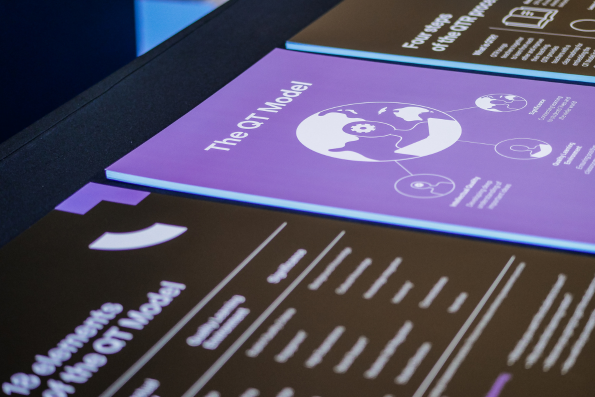
School stories revisited: James Sheahan High School embraces QTR
James Sheahan Catholic High School in Orange, NSW, was one of the first Catholic schools to sign up to Quality Teaching Rounds.
The secondary school of 1,080 students and 90 teachers has embedded QTR in its Annual School Improvement Plan, with four teachers a term taking part and the aim of having all teachers trained by 2024.
Principal Peter Meers said QTR fits with a professional learning community focus on collaboration and the use of data to inform practice.
“We know from research that to make a difference to students’ learning, overwhelmingly, it is the quality of teaching that’s going to impact their success,” Peter said.
He liked that QTR takes place within the school, does not require teachers to travel and is suited to all subject areas and student stages.
“It is not based on the clientele you have and their socioeconomic status, and does not require ultra-experienced or ‘magic’ teachers,” Peter said. “Any teacher can improve their pedagogy, and this model has very clear definitions of the elements of quality teaching.”
Peter said the Quality Teaching Model was ‘the most powerful framework’ he had come across in 33 years of teaching in state and Catholic schools.
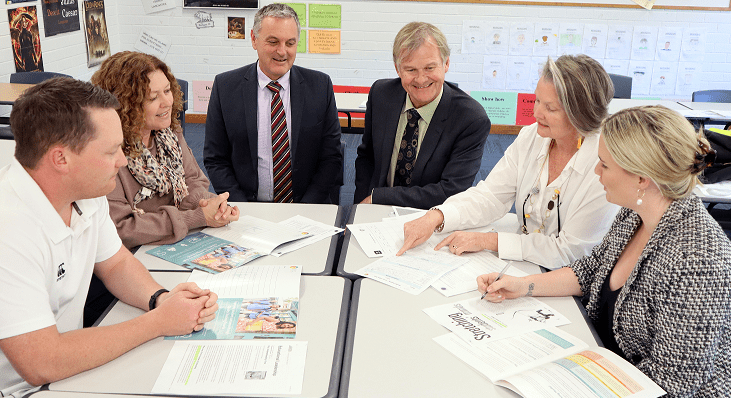
Upcoming workshops and webinars
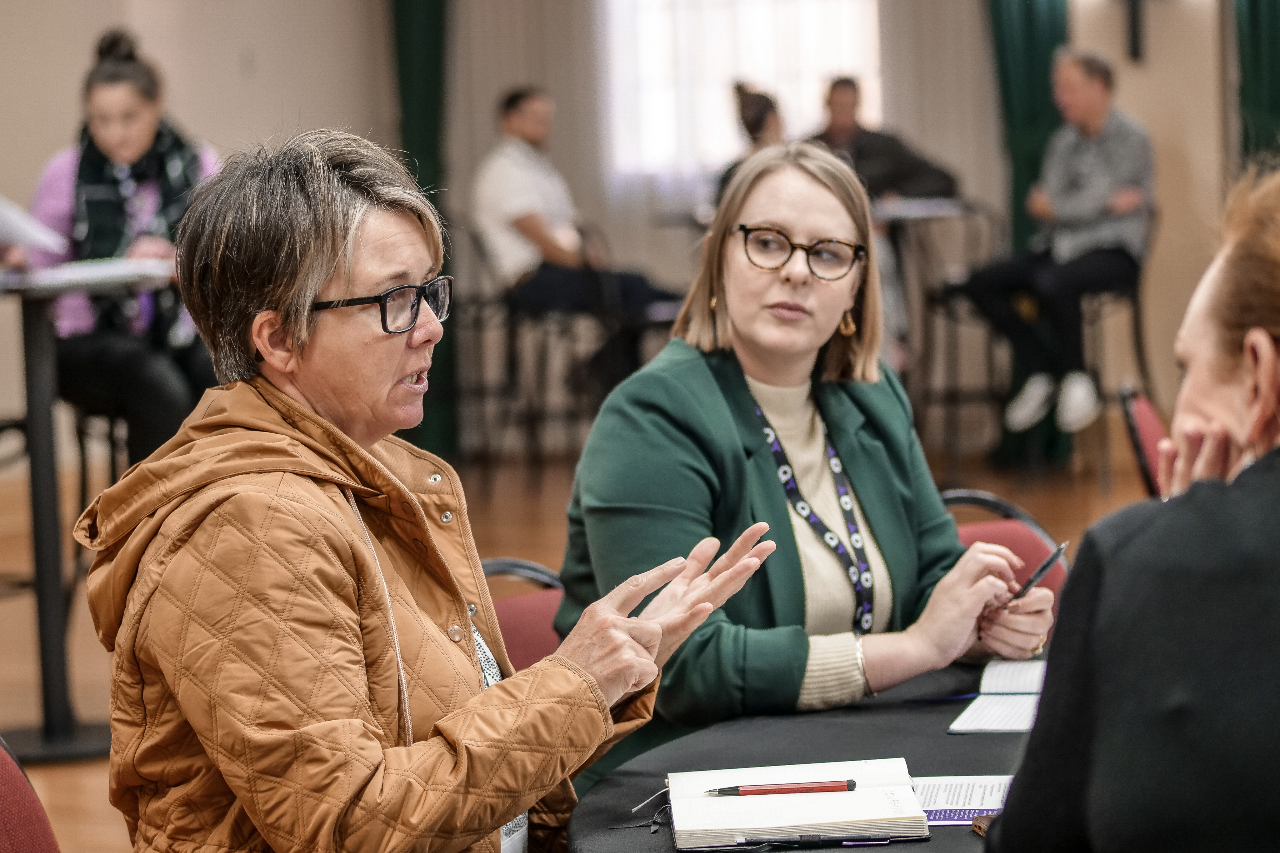
Recent media
- Deep Dive: The groundbreaking program driving educational excellence in Australia’s schools – Brett Henebery; The Educator

